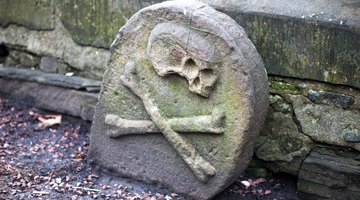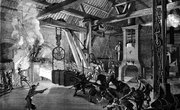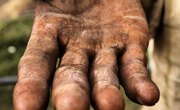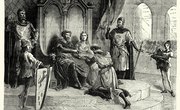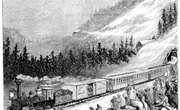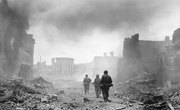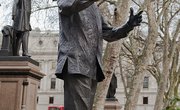The BBC recounts that life during Europe's Middle Ages was barbaric, dark and short-lived. Disease was rampant, life expectancy was 30 years and social classes were governed by feudalism. But in the middle of the 14th century the social and political structure of Europe went through a swift change with the arrival of the black death -- a plague that wiped out a third of Europe and was believed to have been started by flea-infested rats that found their way to Europe via the Silk Road.
Land-Owning Class
Before the Black Death in the early 14th century, Britain was overpopulated. This was very bad for the peasant class, as competition to earn a living was fierce and the unemployment rate was staggeringly high. However, this was a favorable situation for the wealthy land-owning class because it meant labor was easy to come by and very cheap. Historian and filmmaker Dr. Mike Ibeji writes on the BBC History site that there was a "surplus on manpower [and] most landlords found it convenient to relax the old feudal labor dues owed to them on the grounds that men could always be found to perform them." However, when the Black Death wiped out a considerable portion of the peasant population, labor costs went up, inflation crept in, and much of the wealthy land-owning class was depleted.
The Ordinance of Labourers
While the cost of labor went up, the value of livestock went way down due the to disease. The wealthy classes sought to draft laws to prevent the rise in cost to labor, paving the way for the Ordinance of Laborers in June 1349 -- a decree that limited the peasants' ability to search the countryside in search of earnings. The ordinance instructed that men and women of the peasant class should work for the same wages they normally would have earned five or six years before inflation, and if workers demanded higher wages they were to be put in prison. This act caused great resentment between the political and social classes of the time.
Attacks on the Crown and Church
The Black Death caused mass hysteria, which led to physical and verbal attacks against the Crown and the Church. The King and the Catholic Church were sworn to protect outsiders like Jews and lepers. Lepers were singled out and persecuted because people believed they spread the plague, and Jews were believed to have poisoned the water and air. Because the king's men were sworn to uphold the laws they were often ambushed. Historian and author Walter S. Zapotoczny explains in his 2006 article on the social and political consequences of the Black Death that "this persecution was often done [...] as a way of attacking the Kings or the Church who normally protected the Jews." Zapotoczny continues that "Jews were often called the King's property and it was a way for people to lash out at the institutions who they believe had failed them."
Crumbling Government
The Black Death caused most government officials and political figures to become infected, and they locked themselves away in their homes until they died. As more government heads succumbed to the plague, instability ruled because the government was helpless and had no strategy to deal with the plague's results. Physicians fled abroad to escape the disease, leaving state heads to suffer. When the government fell apart, foreign sovereigns stepped in and claimed power by setting up nation states that eventually led to the powerful parties that controlled Europe during the Renaissance.
Related Articles
References
Writer Bio
Jen Saunders is an entrepreneur and veteran journalist who covers a wide range of topics. She made the transition to writing after having spent 12 years in England where she studied and taught English literature.

